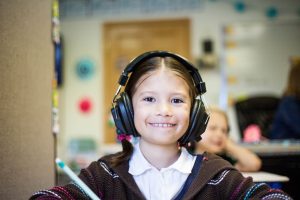Is homeschooling an option for UK parents?
 A recent article in The Spectator has called for a new look at the option of Homeschooling within the UK (view a PDF of the article here).
A recent article in The Spectator has called for a new look at the option of Homeschooling within the UK (view a PDF of the article here).
The New Zealand example hardly matches our schooling system in the UK.
New Zealand does have remote areas and communities that have benefited from this approach, but the UK has a population that is much bigger and there are very few remote areas.
It is possible for every child to go to school.
I believe that parents should be free to make the choice to homeschool their children as we live in a free country.
After all, many parents choose to opt-out of the state system and send their children to private schools.
I don’t think there is anything wrong with this.
However, I would not want to see a system that actively encourages a homeschooling option.
The Oak Academy in my option should not become a viable alternative to mainstream schooling.
There are so many things that mainstream schooling can offer that is so more difficult to organise if children are homeschooled.
Children are able to learn social skills and choose their own friends as they grow rather than living in a narrower world dictated by their parents.
I am aware that homeschooling groups do meet up and they can be quite well organised in arranging various activities that help with socialisation skills but trying to monitor what parents are doing who have opted for homeschooling is very resource-intensive and hard to monitor.
I have known of three families over the years that have opted for homeschooling with varying levels of success.
In one of those families, the three children ended up with no recognisable qualifications whatsoever.
As a result, their options to take up further education or present for various careers were severely limited.
I also had many questions about the quality of what they received over the years in terms of tuition, which was largely carried out by the parents.
I was certainly concerned about the reading skills of the children, as it was clear from my observation that their reading level was a long way below what was expected for their ages.
I would ask, who was checking up on those children and what kind of system of accountability was in place to ensure they were not seriously disadvantaged?
From what I could see, there had been few interventions or educational check-ups being carried out.
There is the danger that a narrower curriculum, or a particular agenda in the education of children, can be fostered by homeschooling or groups that encourage it.
The mainstream system exposes children to a wide range of views and opinions and this is healthy.
The state system is not perfect, but it educates the vast majority of children and it is a place where children grow up being able to come to their own views about things for the most part.
Teaching staff and the breadth of the curriculum ensure that there is no one dogma that is pushed to the exclusion of other views.
The mainstream system also instils a sense of structure, order and separateness from parental control as children gradually exercise increasing levels of independence.
They can take part in team sports and collective activities which are very hard to organise in homeschooling.
Children can learn to express themselves and grow in levels of confidence as they make their way in a bigger and more expansive environment.
This is healthy for a child’s development as they make their way in the world.
The Covid-19 pandemic has emphasised even further how much has been lost to children in terms of socialisation and the potential damage to their mental health.
It is true that much has been learnt about the possibilities of online learning at home, but it will never replace face-to-face learning.
We can utilise these new tools but we shouldn’t be dominated by them.